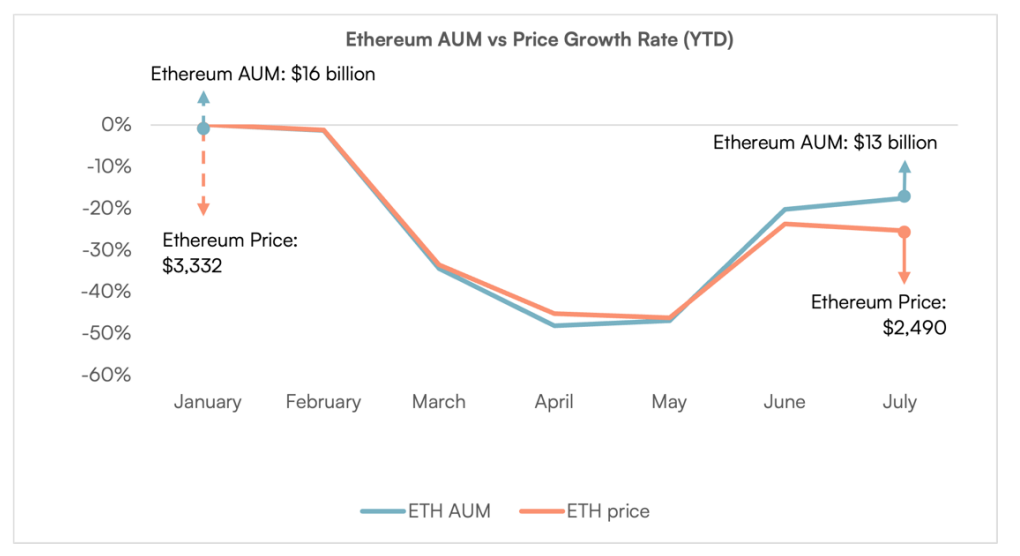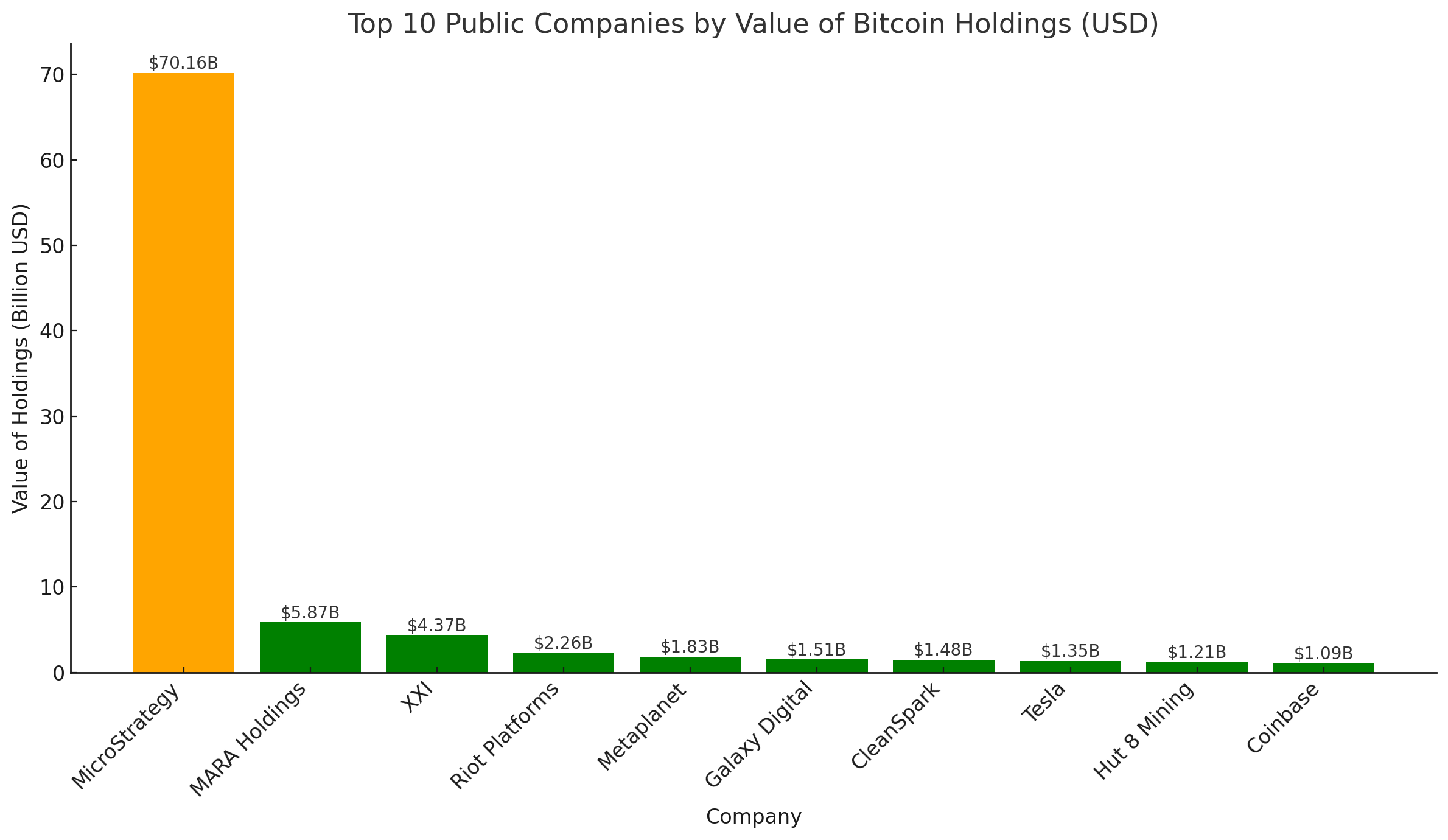-
Core
Scientific’s
CEO,
Adam
Sullivan,
said
that
since
announcing
the
CoreWeave
AI
infrastructure
deal,
the
company
has
received
several
approaches
from
top-tier
private
equity
firms
for
financing
and
partnerships. -
PE
firms
are
chasing
data
center
business
for
AI-related
computing
power
and
looking
at
bitcoin
miners’
existing
infrastructure
as
attractive
options. -
Sullivan
said
the
miner
isn’t
focusing
on
CoreWeave’s
recent
acquisition
offer
but
expects
M&A
to
accelerate
in
the
mining
sector
in
general.
Private
equity
(PE)
firms
are
finally
seeing
value
in
bitcoin
(BTC)
miners,
thanks
to
the
rising
demand
for
data
centers
that
can
power
artificial
intelligence-related
(AI)
machines.
The
bitcoin
miners’
need
for
enormous
amounts
of
energy
isn’t
a
secret
–
in
fact,
it’s
a
hotly
debated
topic.
With
the
rapid
rise
of
the
AI
sector,
the
thirst
for
power
by
AI-related
firms
isn’t
far
off
either.
There
are
reports
of
the
industry
already
using
as
much
energy
as
a
small
country
and
could
ramp
up
even
more.
This
surge
is
creating
a
problem
for
the
AI
industry:
investors
are
pouring
money
into
the
sector,
but
firms
don’t
have
immediate
access
to
infrastructure
to
feed
the
ever-growing
computing
needs.
This
is
where
bitcoin
miners
and
their
data
centers
are
becoming
a
lucrative
option
for
investors,
said
Adam
Sullivan,
the
CEO
of
one
of
the
largest
mining
firms,
Core
Scientific
(CORZ),
in
an
exclusive
interview
with
CoinDesk.
“Private
equity
is
obviously
chasing
the
data
center
space
right
now;
even
private
equity
firms
that
haven’t
necessarily
done
data
centers
before
are
evaluating
the
space,”
Sullivan
said.
These
PE
firms
finally
see
value
in
bitcoin
miners
as
they
can
help
the
AI-related
firms
house
their
machines
in
already-built
mining
infrastructure
or
partner
with
miners
to
build
out
data
centers
faster
than
building
from
scratch.
“One
of
the
biggest
constraints
[for
data
centers]
right
now
is
finding
sites
that
have
over
100
megawatts
of
power
and
have
the
high
voltage
substation’s
transformer
in
place.
Those
are
difficult
sites
to
find,
and
it
just
so
happens
that’s
been
the
criteria
for
locating
bitcoin
mining
sites
for
the
past
four
years,”
Sullivan
said.
Core
Scientific
recently
inked
a
12-year,
200
megawatt
(MW)
deal
with
cloud
computing
firm
CoreWeave
for
AI-related
computing
needs,
with
options
to
expand
the
capacity
further.
Sullivan
noted
that
since
the
news
broke
about
the
deal,
Core
Scientific
has
received
several
approaches
from
tier-one
private
equity
firms
offering
financing
for
further
AI-related
partnerships.
In
fact,
the
deal
has
triggered
a
re-rating
of
the
bitcoin
mining
sector
as
it
renewed
investors’
interest
in
the
sector.
JPMorgan
even
went
one
step
further
and
said
that
the
deal
validates
the
mining
sector’s
involvement
in
high-performance
computing
(HPC)
and
may
usher
in
a
new
age
of
mergers
and
acquisitions
for
the
miners.
Post-Halving
struggle
One
of
the
main
reasons
private
equity
is
interested
in
the
mining
sector
now
is
the
recent
bitcoin
halving,
which
cut
the
bitcoin
rewards
in
half,
making
it
more
competitive
for
the
miners.
Many
miners
are
struggling
to
keep
their
businesses
profitable,
and
some
are
looking
to
either
sell
the
company
or
diversify
their
revenue
sources
by
repurposing
their
data
centers
to
host
HCP
and
AI-related
computing
machines.
“The
halving
has
also
caught
the
attention
of
private
equity
firms,
which
see
this
event
as
an
opportunity
to
consolidate
smaller
firms
and
fold
their
existing
infrastructure
into
their
own,”
the
firm
said
in
a
note
dated
July
2,
adding
that
some
mining
stocks,
including
Hut
8
(HUT)
and
Bitfarms
(BITF)
have
done
“exceptionally
well”
since
the
halving.
However,
the
amount
of
capital
needed
to
build
or
repurpose
data
center
clusters
to
accommodate
AI
computing
isn’t
cheap.
In
such
a
competitive
market,
it
is
becoming
prohibitively
more
expensive
for
some
miners
to
do
so
and
private
equity
is
now
seeing
an
opportunity
to
help
these
miners
offer
financing
and
other
expertise,
Core
Scientific’s
CEO
said.
“Many
of
these
Bitcoin
mining
companies
are
struggling
right
now
to
build
their
bitcoin
mining
facilities,
and
these
private
equity
firms
are
looking
at
potential
returns,
looking
at
ways
that
they
can
grab
economic
value
out
of
some
of
these
potential
conversions
[from
mining
to
HCP],”
noted
Sullivan.
In
many
cases
these
PE
firms
can
provide
a
significant
amount
of
assistance
to
some
of
the
more
“under-qualified”
miners,
including
bringing
in
a
new
partner
or
introductions
to
new
potential
customers,
he
added.
Another
reason
PE
firms
are
circling
the
mining
sector
now,
after
ignoring
it
for
several
years,
is
that
previously,
“value
was
too
volatile
for
their
return
profile.”
Longer-duration
HPC
deals,
such
as
the
12-year
contract
Core
Scientific
signed,
are
“much
more
viable
and
investable
for
private
equity
firms,”
Sullivan
added.
Existential
threat?
The
business
model
for
private
equity
is
own-to-sell:
buy
a
business
or
asset,
tweak
or
completely
change
the
business
model
and
then
sell
the
company
to
maximize
return.
Will
this
mean
the
end
of
the
bitcoin
miners?
The
answer
is
not
that
simple,
according
to
Sullivan.
First,
this
would
be
part
of
a
broader
shift
for
some
sections
of
the
mining
business.
Future
halving
will
continue
to
make
the
industry
more
competitive,
pushing
for
lower-cost
mining
sites,
which
will
likely
see
the
most
interest
from
HCP
and
PE
firms.
Secondly,
not
all
mining
sites
used
today
can
be
converted
into
data
centers.
A
number
of
variables
can
make
some
sites
unsuitable
for
HPC
conversion,
and
he
added
that
these
will
remain
mining
sites
as
long
as
it’s
economically
viable
for
them
to
stay
in
the
mining
business.
However,
before
miners
can
make
it
to
the
next
halving,
they
must
survive
the
one
that
just
happened
this
year.
The
overcrowded
mining
space
is
now
feeling
pressure
from
the
margin
squeeze,
resulting
in
a
flurry
of
acquisitions
and
renewed
deal-making
talks
among
the
miners.
In
fact,
Core
Scientific
rejected
a
$5.75
per
share
takeover
offer
from
CoreWeave
the
same
day
it
signed
the
200MW
deal,
saying
it
significantly
undervalued
the
firm.
When
asked
about
the
deal’s
status,
Sullivan
said
both
companies
are
now
focused
on
organic
growth
opportunities.
At
the
same
time,
Core
Scientific
is
aggressively
pursuing
new
sites
and
is
talking
to
new
potential
clients.
Still,
unsurprisingly,
the
CEO
of
the
public
mining
company
said
that
if
a
potential
suitor
is
willing
to
pay
what
shareholders
and
the
board
considered
to
be
full
value
for
the
company,
the
firm
will
have
to
consider
the
offer.
Despite
the
outright
rejection
of
the
offer,
Sullivan
thinks
that
M&A
is
just
starting
in
the
mining
space.
The
recent
wave
of
M&A
activity
also
saw
a
hostile
takeover
battle
between
Riot
Platforms
(RIOT)
and
Bitfarms,
CleanSpark
(CLSK)
buying
GRIID
(GRDI)
and
Hut
8
getting
AI-related
financing,
and
this
is
just
the
beginning.
“I
think
we’re
still
in
the
early
innings
of
the
M&A
that’s
going
to
occur
over
the
course
of
the
next
12
months,”
said
Sullivan.
“I
think
many
companies
are
much
more
incentivized
to
sell
their
businesses
to
other
larger
companies,
given
the
infrastructure
constraints
or
look
to
convert
more
of
their
facilities
to
HPC,”
he
noted,
adding
that
most
of
the
“mid-market”
miners
are
likely
to
put
themselves
up
for
sale.






